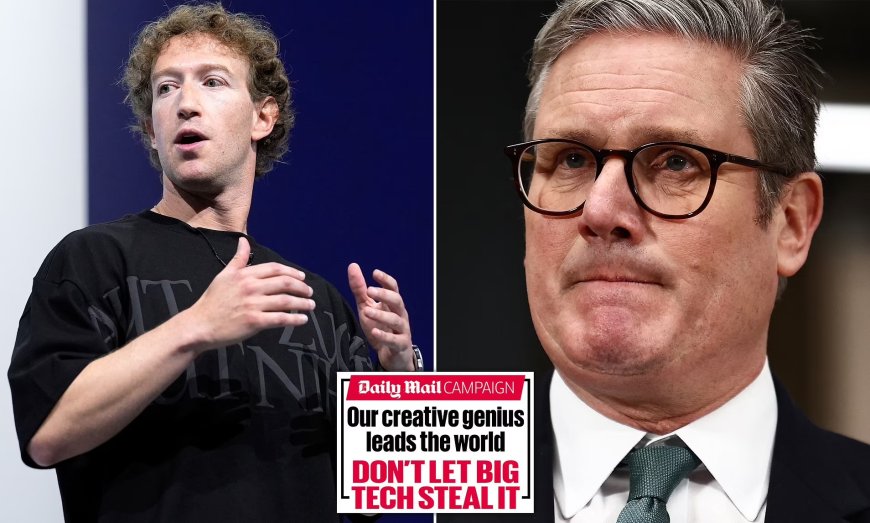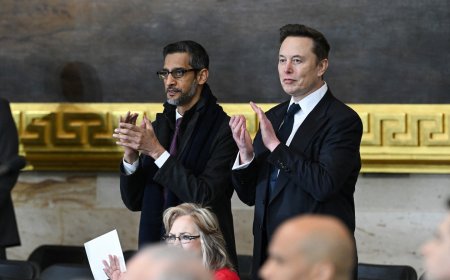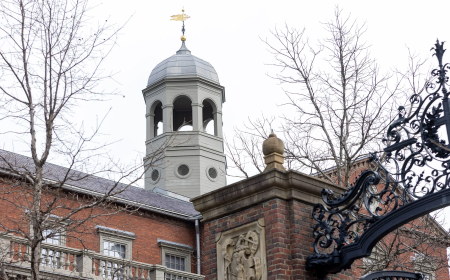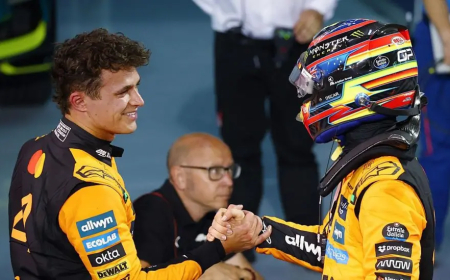Google, Meta and the rest of US Big Tech are the robber barons of our age.
Now, incredibly, a Labour Government is planning to help them pull off the theft of the century: ANDREW NEIL

Not content with grovelling before the President of the United States in a forlorn attempt to stay in his good books – a fool's errand if ever there was one, given how Donald Trump can turn on a sixpence – the British Government is also abasing itself before some of the US's biggest companies in a desperate effort to ingratiate itself with them too. It is an unedifying sight. Labour wants to give American Big Tech, the biggest, richest and most powerful corporations in the world, the right to hoover up the copyrighted creations of Britain's book publishers, newspaper groups, TV companies, record labels and film studios and anything else emanating from our artistic endeavours – without paying a bean. It will be the Theft of the Century if they get away with it. Big Tech companies such as Google, Meta (owner of Facebook) and OpenAI, in the relentless pursuit of content to feed their artificial intelligence (AI) models, are lobbying hard for UK copyright laws to be suspended so they can plunder British creative content at will and for free – content they will then repurpose to make untold billions for themselves. At the end of the 19th century, when America's Gilded Age was at its height, unprecedented wealth was concentrated in the hands of a charmed circle of ruthless industrialists like Andrew Carnegie, Cornelius Vanderbilt and John D Rockefeller, who became known as 'robber barons'. They colluded in the formation of secretive cartels known as 'trusts' in vital industries such as steel, oil and railways to restrict production, raise prices, squeeze out the competition and stop any new providers entering the market – classic monopoly behaviour. It took two progressive Republican presidents, William McKinley and Theodore Roosevelt, to break them up by enacting a series of 'trust-busting' federal laws. Google, Meta and the rest of US Big Tech are the robber barons of the 21st century. But, far from being a trust-buster, our supposedly progressive Labour Government proposes to enhance their power and privilege. Mark Zuckerberg, owner of Meta, seeks to benefit enormously from the proposals Mark Zuckerberg, owner of Meta, seeks to benefit enormously from the proposals Keir Starmer's Labour Government is encouraging the pillaging of some our biggest creative brands, writes Andrew Neil Keir Starmer's Labour Government is encouraging the pillaging of some our biggest creative brands, writes Andrew Neil It is currently consulting on proposals (which it clearly favours) that would give AI companies an 'exception' to of the UK's copyright regime. This would automatically permit them to 'scrape' British creative content from the web, unless those who hold the copyright explicitly forbade it. In other words, Big Tech – which is overwhelmingly American – would have the default permission to grab whatever UK material it wants, with the onus being on the copyright holders to opt out or negotiate licensing terms. Don't let Big Tech steal UK's creative genius: Music, film and publishing bosses back Mail campaign article image Fine, perhaps, if you're one of the big content providers in publishing, newspapers or film and TV. You might well have the legal and financial resources to protect your copyright from the robber barons and force them to pay for it. But not so good if you're one of the many smaller content creators that make Britain a creative superpower, second only to the US. Indeed, you might not even be aware your stuff is being stolen, such is the secrecy that surrounds Big Tech's data sources. Britain's creative industries contribute £126billion a year to the UK economy and employ 2.4million people, mostly in very small businesses. But it's not just the loss of copyright over works they laboured so hard to create for no compensation that's hard to stomach. As the AI models gobble up, analyse and assess all the content, it will not be long before they are regurgitating it in multiple forms that will compete directly with our very own creative industries. In future, authors, photographers, designers, influencers and millions of other creative folk could find the markets for their work destroyed if Big Tech develop their AI chatbots to the point where they can perform many of the tasks currently carried out by writers and artists. So why is Labour prepared to go along with this wholesale larceny of our creative crown jewels by US Big Tech? Ministers have calculated that if the Government is nice to Big Tech then Big Tech might be nice to Britain. They see a growing AI sector in Britain as one of the keys to that mystical economic growth which has so far eluded them. Only a bunch of politicians as wet behind the ears as our current lot could seriously believe this. Big Tech will go wherever there are the biggest bucks to be made, not to where some here-today-gone-tomorrow Labour politicians did it some favours marginal to their quest for global domination. True, our world-class universities, peerless creative minds and risk-taking investors have combined to make us Europe's leader in AI, behind only America and China on the global stage. But if we want to retain that position, then we should do something about our energy policy rather than give away our creative assets. 'Energy policy?' I hear you ask. Surely energy is marginal in the digital age, unlike the days when our old heavy industries were voracious consumers. In fact, nothing could be further from the truth. AI data centres alone consume vast quantities of electricity and they are being located where energy is cheap, reliable and plentiful, which means: not in Britain. We have some of the highest energy prices in the world. Our increasing dependence on intermittent renewables means our electricity is not always reliable which, in turn, means it is sometimes not plentiful. There are times when the National Grid has to ask industry to reduce its consumption – or even switch off for a while. That's an energy nightmare for Big Tech. If Keir Starmer was really serious about keeping us in the forefront of AI, he would fire Ed Miliband as Energy Secretary and abandon his mad drive for net zero. That would do far more for our chances in the digital age than giving away the copyright of our creative industries. Instead, we're presented with the extraordinary sight of a Labour Government – a Labour Government – encouraging the pillaging of some our biggest creative brands and most ingenious individuals in a bizarre transfer of wealth from them to Big Tech companies that already make too many billions as it is at our expense. Read More ANDREW NEIL: Labour's grovelling won't help ease Trump's world of pain article image We've been here before. Thirty years ago, when I was editor of The Sunday Times, our advertising revenues – classified and display – were immense. They paid for the high-quality, independent, fact-based journalism all democracies and free societies need to thrive. Then along came the internet and with it Google and Facebook, to which so much advertising fled. Very soon Big Tech was gobbling up more than 90 per cent of ad revenues and newspapers had to develop new business models to survive. Some didn't. Others became a shadow of their former selves. Democracy was not enhanced. Neither were the coffers of the British Treasury. Yes, we made ourselves a welcoming host for US Big Tech – and some good jobs came with it, even some cutting-edge research and development. But somehow the money it made never saw its way into our national purse. Instead it was funnelled out via Big Tech tax havens such as Dublin and Luxembourg to the owners in California. There is every reason to fear that will happen again if our copyright laws are so cavalierly abandoned. They have been around for over 300 years. They have stood the test of time. They should be a bulwark against the rapacity of Big Tech – not an inconvenience to be scuttled in return for some vague promises of future investment that might never materialise.
resourse:DailyMail







































